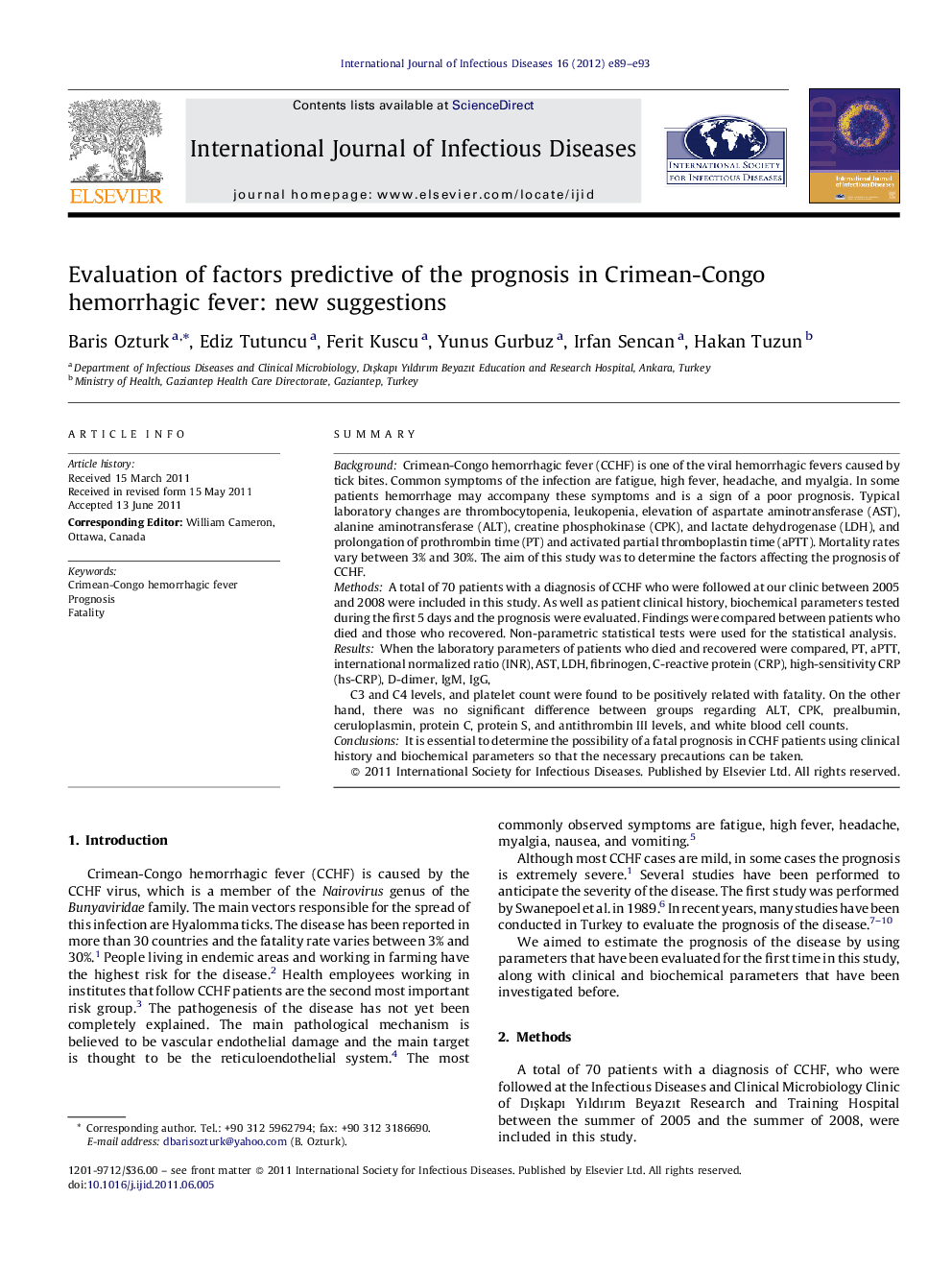| Article ID | Journal | Published Year | Pages | File Type |
|---|---|---|---|---|
| 3363197 | International Journal of Infectious Diseases | 2012 | 5 Pages |
SummaryBackgroundCrimean-Congo hemorrhagic fever (CCHF) is one of the viral hemorrhagic fevers caused by tick bites. Common symptoms of the infection are fatigue, high fever, headache, and myalgia. In some patients hemorrhage may accompany these symptoms and is a sign of a poor prognosis. Typical laboratory changes are thrombocytopenia, leukopenia, elevation of aspartate aminotransferase (AST), alanine aminotransferase (ALT), creatine phosphokinase (CPK), and lactate dehydrogenase (LDH), and prolongation of prothrombin time (PT) and activated partial thromboplastin time (aPTT). Mortality rates vary between 3% and 30%. The aim of this study was to determine the factors affecting the prognosis of CCHF.MethodsA total of 70 patients with a diagnosis of CCHF who were followed at our clinic between 2005 and 2008 were included in this study. As well as patient clinical history, biochemical parameters tested during the first 5 days and the prognosis were evaluated. Findings were compared between patients who died and those who recovered. Non-parametric statistical tests were used for the statistical analysis.ResultsWhen the laboratory parameters of patients who died and recovered were compared, PT, aPTT, international normalized ratio (INR), AST, LDH, fibrinogen, C-reactive protein (CRP), high-sensitivity CRP (hs-CRP), D-dimer, IgM, IgG,C3 and C4 levels, and platelet count were found to be positively related with fatality. On the other hand, there was no significant difference between groups regarding ALT, CPK, prealbumin, ceruloplasmin, protein C, protein S, and antithrombin III levels, and white blood cell counts.ConclusionsIt is essential to determine the possibility of a fatal prognosis in CCHF patients using clinical history and biochemical parameters so that the necessary precautions can be taken.
